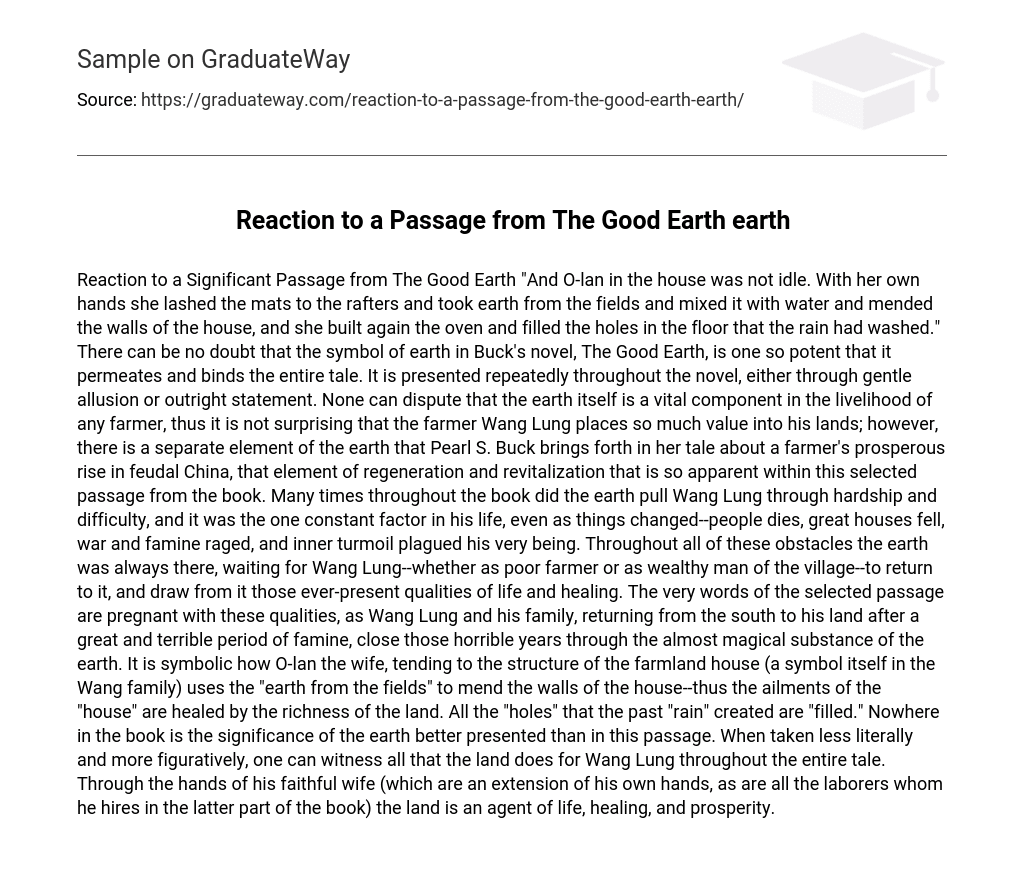Reaction to a Significant Passage from The Good Earth “And O-lan in the house was not idle. With her own hands she lashed the mats to the rafters and took earth from the fields and mixed it with water and mended the walls of the house, and she built again the oven and filled the holes in the floor that the rain had washed.” There can be no doubt that the symbol of earth in Buck’s novel, The Good Earth, is one so potent that it permeates and binds the entire tale. It is presented repeatedly throughout the novel, either through gentle allusion or outright statement.
None can dispute that the earth itself is a vital component in the livelihood of any farmer, thus it is not surprising that the farmer Wang Lung places so much value into his lands; however, there is a separate element of the earth that Pearl S. Buck brings forth in her tale about a farmer’s prosperous rise in feudal China, that element of regeneration and revitalization that is so apparent within this selected passage from the book. Many times throughout the book did the earth pull Wang Lung through hardship and difficulty, and it was the one constant factor in his life, even as things changed–people dies, great houses fell, war and famine raged, and inner turmoil plagued his very being. Throughout all of these obstacles the earth was always there, waiting for Wang Lung–whether as poor farmer or as wealthy man of the village–to return to it, and draw from it those ever-present qualities of life and healing. The very words of the selected passage are pregnant with these qualities, as Wang Lung and his family, returning from the south to his land after a great and terrible period of famine, close those horrible years through the almost magical substance of the earth.
It is symbolic how O-lan the wife, tending to the structure of the farmland house (a symbol itself in the Wang family) uses the “earth from the fields” to mend the walls of the house–thus the ailments of the “house” are healed by the richness of the land. All the “holes” that the past “rain” created are “filled.” Nowhere in the book is the significance of the earth better presented than in this passage. When taken less literally and more figuratively, one can witness all that the land does for Wang Lung throughout the entire tale. Through the hands of his faithful wife (which are an extension of his own hands, as are all the laborers whom he hires in the latter part of the book) the land is an agent of life, healing, and prosperity.





